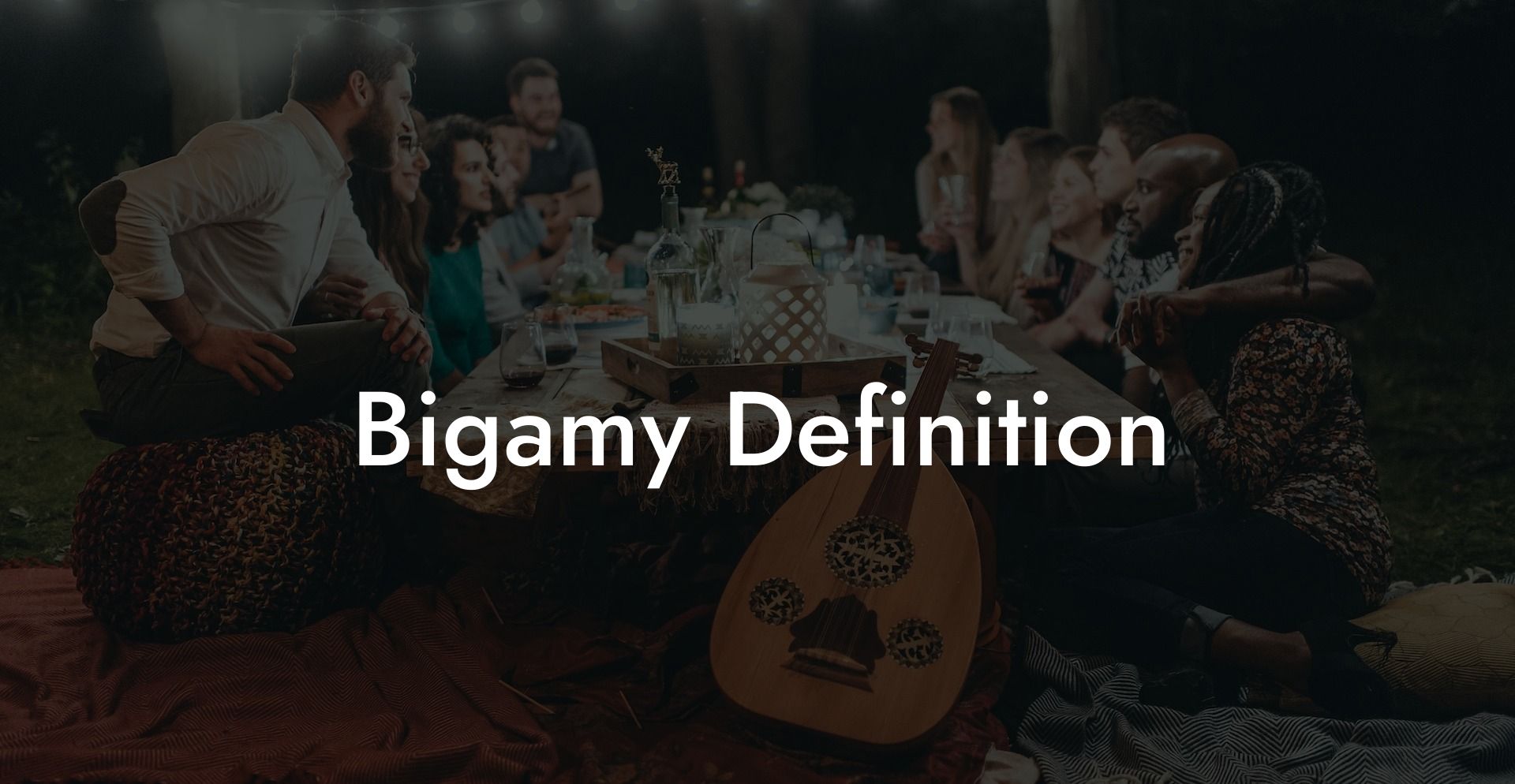The concept of having multiple romantic relationships might sound interesting to some, but it's important to be aware of legal and moral boundaries. Bigamy is one such practice that not only crosses legal limitations but can also lead to negative consequences for everyone involved. But what exactly is bigamy, and why it is considered a crime in most jurisdictions?
Bigamy Definition Table of Contents
This article serves as a detailed guide to understanding bigamy, its repercussions both legally and emotionally, and why it's a far cry from ethical non-monogamy practices like polyamory. So join us as we dive into the world of bigamy, and don't forget to share this insightful guide with your friends and explore other content on The Monogamy Experiment!
What is Bigamy?
Bigamy, in layman's terms, refers to the act of entering into a marriage with someone while still being legally married to another person. This practice is illegal in most parts of the world, including the United States, the United Kingdom, Canada, and Australia. Bigamy is different from polygamy, which is a broad term that includes both polygyny (one man marrying multiple women) and polyandry (one woman marrying multiple men).
In most cases, bigamy is seen as a form of fraud, where one spouse intentionally hides their marital status to deceive the other party. It's also different from bigamous cohabitation – living with multiple partners without any legal marriage involved.
Legal Consequences of Bigamy
The legal penalties for bigamy vary from country to country, and even within different states in the United States. Generally, bigamy can lead to a fine or imprisonment, depending on the severity and particular circumstances of the case.
For instance, in the United States, bigamy is a felony in some states, leading to imprisonment ranging from one to ten years. In countries like the United Kingdom and Australia, bigamy is punishable by a prison sentence of up to seven years.
Aside from legal consequences, bigamy can also lead to the nullification of the second marriage. Annulment of the marriage can leave the innocent spouse in a difficult situation, both emotionally and financially.
Emotional Consequences of Bigamy
The emotional repercussions of bigamy can be immense for all parties involved. It can lead to the loss of trust, feelings of betrayal, and emotional distress for the innocent spouse, who has been deceived by their partner. Bigamy often also involves lying to family and friends, resulting in ruined relationships and a loss of social support.
Difference Between Bigamy and Polyamory
It's essential to differentiate bigamy from consensual non-monogamy practices like polyamory. Polyamory is based on mutually agreed-upon relationships among multiple partners, with all parties being fully aware of the nature of the relationship. In contrast, bigamy involves deceit and lack of consent, making it an illegal and morally objectionable practice.
In conclusion, understanding the definition and consequences of bigamy is essential to recognize the legal and emotional boundaries of relationship dynamics. It's crucial to be transparent and honest within our relationships, and it's always better to explore ethical non-monogamy practices like polyamory if monogamy isn't your ideal choice.
We hope this guide provided you with a clear understanding of bigamy and its implications. Don't forget to share this post with your friends, and continue exploring the intricacies of relationships through other engaging guides on The Monogamy Experiment!













